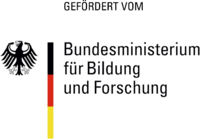Working Group E, Summer 2015
Future as Commodity and In(ter)vention: Narration, Knowledge and Technology
Please find the PDF of the Brochure ("Program Supplement") here.
The Program of the Stuart-Hall-Workshop is to be found here.
After the previous Working Groups investigated and discussed notions of temporality, space and nature in their relation to ‘Future/s’, this Working Group E will explore the idea of future as commodity in regard to narration as guided by the question: What is narrated when about the future by whom, how and why and how do these narrations commodify futures?
Narrations are trans-spaces that entangle the world throughout time and space. Being societal textures, narrations shape different forms of texts (be it fictional texts, ethnographic texts, sounds, visual languages, sets of images, codes and/or numbers) that rely on and feed into epistemologies. In fact, any narration relies on the interaction of ‘discourse’ (content) and ‘story’ (structure) and thus the entanglement of ‘who’, ‘what’ and ‘how?’ In other words, the discourse (i.e. ‘what’) is communicated via chains of events, narrative texts, images, or cultural artifacts (i.e. the ‘how’)? When complementing the ‘what’ and the ‘how’ with time (‘when’), reason (‘why’) and subjectivity/agency (‘who’), narration turns out to be a commodifying performance.
Commodity is understood here foremost as materialized products with market-value such as texts (blogs), novels, plays, and films as well as different other codes of (scientific) knowledge (production) like ethnographic materials, models, empirical research data, etc. and the ways they are sorted, structured and received in different communities of knowledge and practice. The term is further perceived as a knowledge-product/material/item that enables us to read ‘future’ in a shifting, deferred sense that might challenge our imaginations of the seemingly girdling present and the still to-come. Thus framed, we read commodities as wares that are coded economically, politically, intellectually and culturally, thus referring to all sorts of properties, be it intellectual or material. We therefore do not perceive commodity as a term confined to capitalism as scrutinized by Marxism; rather commodity is a concept that blossoms intellectually, culturally and virtually. The key question is hence as following: What makes future a commodity – how, when, by whom and for what reason – and how is this affected by narration – in various fields such as art, academia, politics, economy, ecology, etc.?
As Elisio Macamo reminds us, (re)searching for modes of conceptualizations of ‘future’ in Africa from a European point of departure already contains various traces of narratives which might already manifest themselves as a ‘future we hope to find’. In order to approach these inscribed narratives, it is important to unpack the notion of ‘future’ itself. Along those lines, Working Group E aims at reading ‘future’ in its fluidity between an already existing pretext (inventions) and new storytelling (interventions).
Like any concept and idea, we understand ‘future’ as a free floating discursive ‘artifact’ that is susceptible to its uses, its meanings being constructed upon different readings, in different spaces against different tracks and/of memory that it touches. Those tracks may be signs of time, of events, that give meanings to it. When such ‘artifacts’ become part of the flows of knowledge that, especially in the present, characterize the complex configurations of (globalized) ethics/aesthetics, capital/property and technology/nature, etc., it turns into a commodity that is exchanged and bargained. The ‘trade’ affects are sorts of exchanges, be it money, goods, knowledge, literature and the market-value goes far beyond economic interests (financescapes, to use Appadurai’s wording). It also has a contested affective, performative value of knowledge (-production) and (re-) narration. Understanding ‘future’ as a layer or level of time is one such understanding that is nonetheless subject to the free flow of space-time and its construals. Yet ‘future’ can also be construed as a commodity of in(ter)vention into/of representations of the past (memory) and possibilities of the present (agency).
In this Working Group, different narrations about the future will be approached, whereby the focus will be on power and/of knowledge as related to time and space, ownership and belonging, articulation and silence. Paradigms of producing or silencing futures will be explored, based on core notions and categories of narratives about/on future, such as memory, hope, vision, and acceleration. One focal point of our perspective under scrutiny and a prominent pillar of the subsequent discussions will constitute technology and its effects on narrations on/about future. Of special interest will be the technology of the world wide web as an other space that has given new (philosophical, conceptual) dimensions to space-time, duration, distance and narrativity. Another core interest will address academia as shaped by and positioned within the interaction of future, narration and commodity: how do academic structures predetermine the ‘findings’ about future and how do they foster and silence epistemologies and related visions, in(ter)ventions and resources?
Our main objective is to further strengthen transdiciplinary discussions amongst the members of the Academy by providing maybe other angles to open up space for thinking ‘future’ ‘Africa’.



